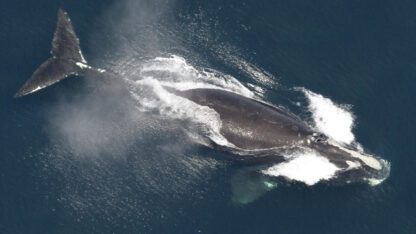Scientists in Brazil have come up with the first evidence that sharks are being exposed to cocaine.
Rachel Ann Hauser Davis, a biologist who worked on the study at Brazil’s Oswaldo Cruz Foundation, told NPR that they dissected 13 wild sharpnose sharks caught near Rio de Janeiro. All tested positive for cocaine in their muscles and livers.
“The key findings of the study are the presence of cocaine in sharks,” Hauser Davis says. “The actual high levels of cocaine detected in muscle is indicative of chronic exposure.”
Narcotraffickers being chased in the high seas often toss bales of cocaine overboard. But Hauser Davis says it’s more likely the sharks in the study were exposed to Rio de Janeiro wastewater contaminated with the drug.
“Probably the main source would be human use of cocaine and metabolization and urine and feces discharge, and the second source would be from illegal refining labs,” she says.
Hauser Davis points out that cocaine affects the brain and could lead to hyperactive behavior among sharks — though she says the issue needs more research.
The findings in Brazil add to a growing body of research on marine wildlife and cocaine. For example, a 2018 study in the United Kingdom found that eels exposed to cocaine were having trouble mating.









